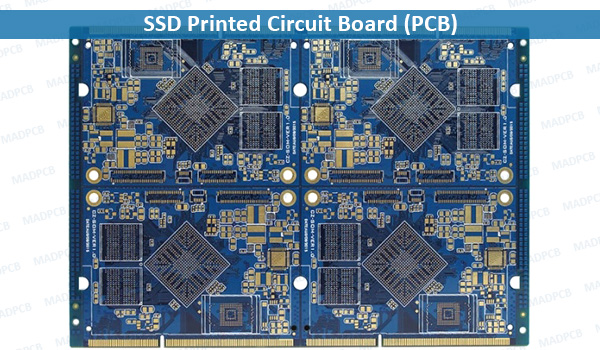A Solid-State Drive (SSD) is a solid-state storage device that uses integrated circuit assemblies to store data persistently, typically using flash memory, and functioning as secondary storage in the hierarchy of computer storage. It is also sometimes called a solid-state device or a solid-state disk, even though SSDs lack the physical spinning disks and movable read–write heads used in hard disk drives (HDDs) and floppy disks.
SSDs, essentially semiconductor memory devices mounted on a circuit board, are small and lightweight. They often follow the same form factors as HDDs (2.5-inch or 1.8-inch) or are bare PCBs (M.2 and mSATA.) The enclosures on most mainstream models, if any, are made mostly of plastic or lightweight metal. High performance models often have heatsinks attached to the device, or have bulky cases that serves as its heatsink, increasing its weight.
MADPCB is professional in high-volume SSD PCB manufacturing and assembly, the daily output capability, including SMT assembly, PCBA cleaning, validation and ESD packaging, is about 10K pieces.

